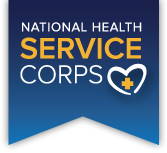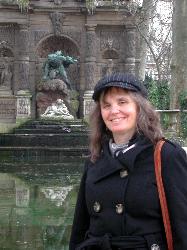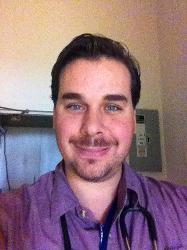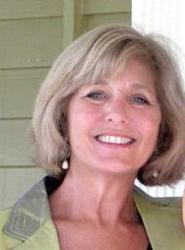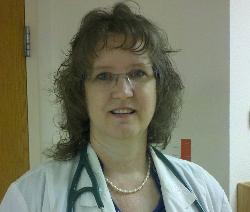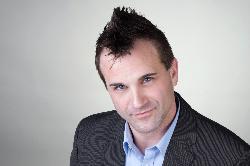Although she grew up in Massachusetts, Beverly Rivard, a licensed clinical social worker, wanted to live her life out west caring for the underserved populations of rural Montana and Wyoming.
“I was drawn to the adventure of living in Montana,” she said. “After I arrived, I realized that I wanted to know more about American Indians and gradually made friends with some Northern Cheyenne people through listening to their amazing stories.”
Years later, while living in Powell, WY, Beverly and her husband participated in fur trade reenactments and other historical events. While Beverly and a friend attended a Métis gathering, she discovered her family name in many of the old records. A Métis gathering is when a group of people who come from a mixed American Indian and European ancestry get together to share stories and find out more about their shared culture. After attending the gathering, Beverly told her sister and found out that her grandmother had shared that they were, in fact, of American Indian heritage. Longing to know more about her ancestry, Beverly applied for membership in the American Métis Association.
Beverly and her husband traveled to Alaska for vacation where she fell in love with the state and its gorgeous natural scenery, so much so that Beverly decided to accept a position in Alaska. It was in there that she heard about the National Health Service Corps (NHSC), and the benefits it offers for providers who work in communities with limited access to care.
She first accepted a position in Wrangell, but then relocated to Sitka -- another small southeast island -- where she serves as a behavioral health clinician and member of the NHSC. This summer marked one year that Beverly has been with the Corps.
“In Alaska, there is a large population of Native Alaskans. There is also a high need for health care providers in this community. It was a perfect fit for me!” said Beverly.
Beverly has found herself and her calling in Alaska. She understands her own history, and she is connecting with a community that needs her. She works in a Native culture-based residential program for substance abuse and co-occurring disorders. She also teaches educational groups and provides individual psychotherapy, during which she encourages clients to connect with themselves and each other.
“The most rewarding part of my job is helping people reconnect with who they are,” she added. “Many think they have lost themselves through their substance abuse. But, we work together to collect the pieces that make up the picture of who they have always been, and they rediscover the good things about themselves and find out who they are again.”
A patient came to her clinic with a long history of drug abuse. This patient had been in trouble with the law and was required to get treatment. Beverly did an assessment, during which her patient began to divulge traumatic experiences that had been blocked out because of prolonged substance abuse. He had fallen out of touch with the person he wanted to be. However, after several sessions with Beverly and several weeks of residential treatment, this patient learned to take care of himself again.
Beverly would tell him, “You are safe. Right now you can make decisions for yourself. Stay in this moment.” Her patient later told her that he had begun to feel secure for the first time.
Beverly tells her patients, “It is important to accept your past and to know that you that you are not just your experience. You are so much more.”
Beverly loves her community and the way in which people take ownership of it. She feels connected to the place and to the people who work together to help each other. She gets involved with the artistic community and works as a volunteer to provide grief support for people who have experienced loss.
“This is such an amazingly beautiful place. It’s a mix of tradition and modern medicine. I don’t plan to leave anytime soon.”
